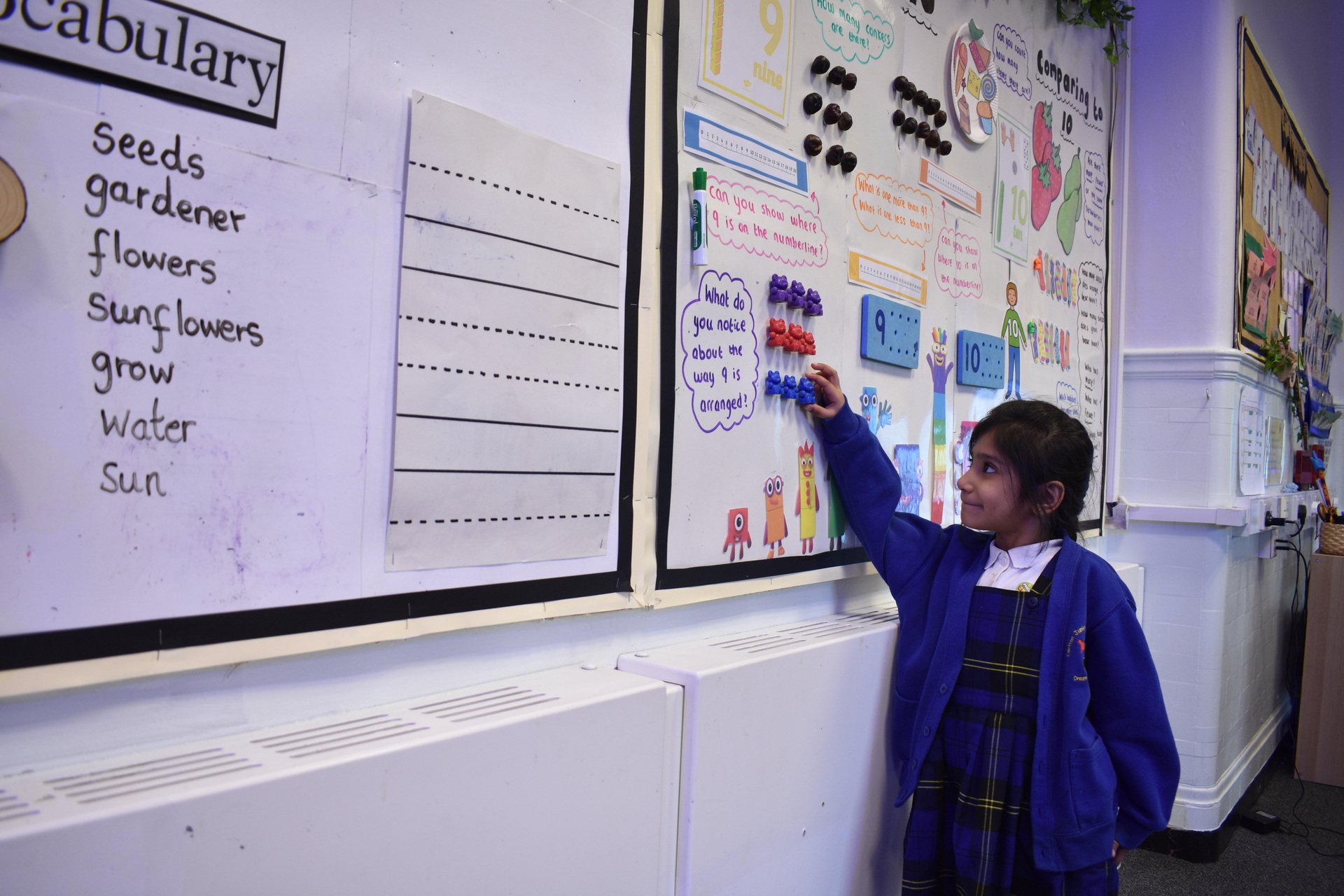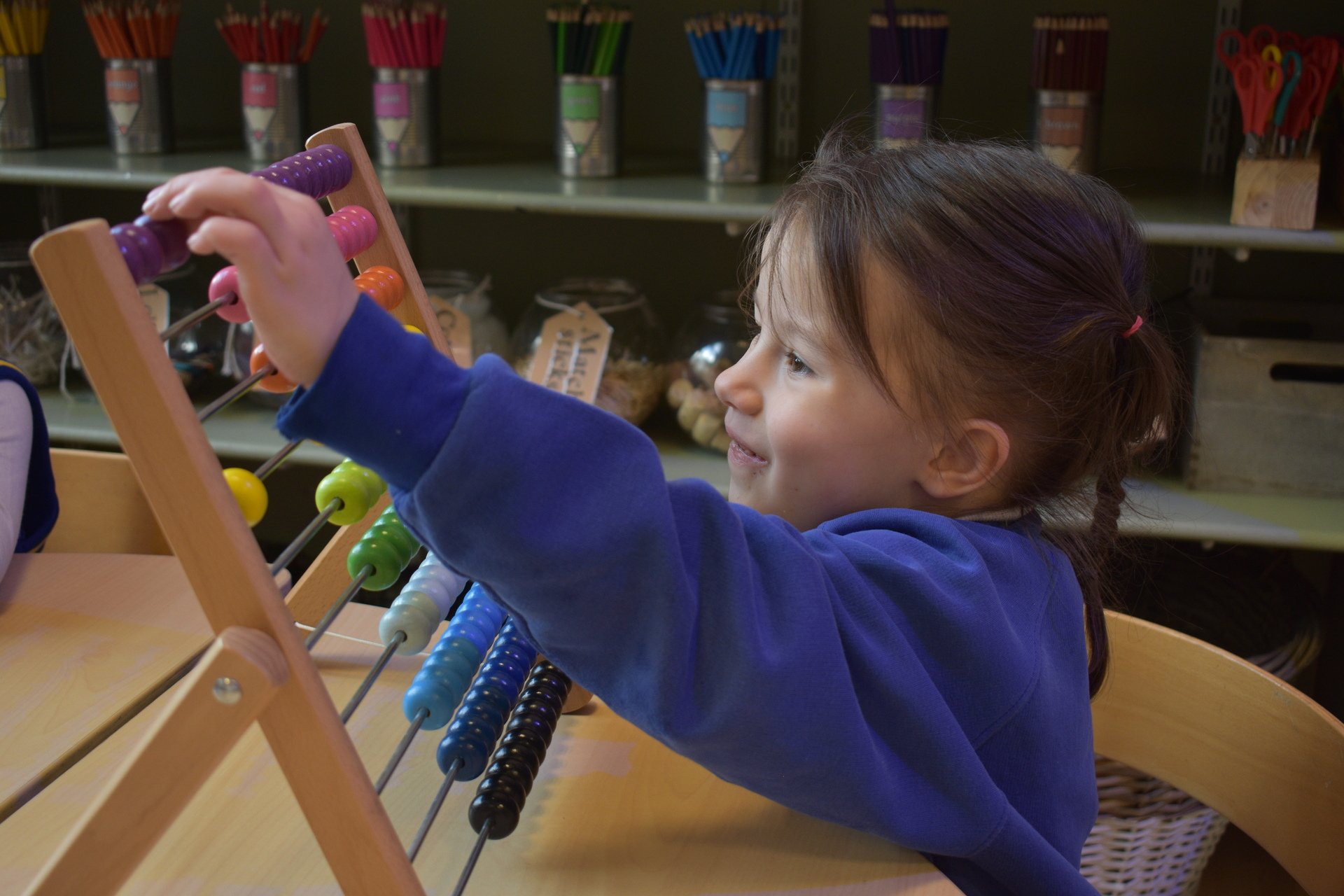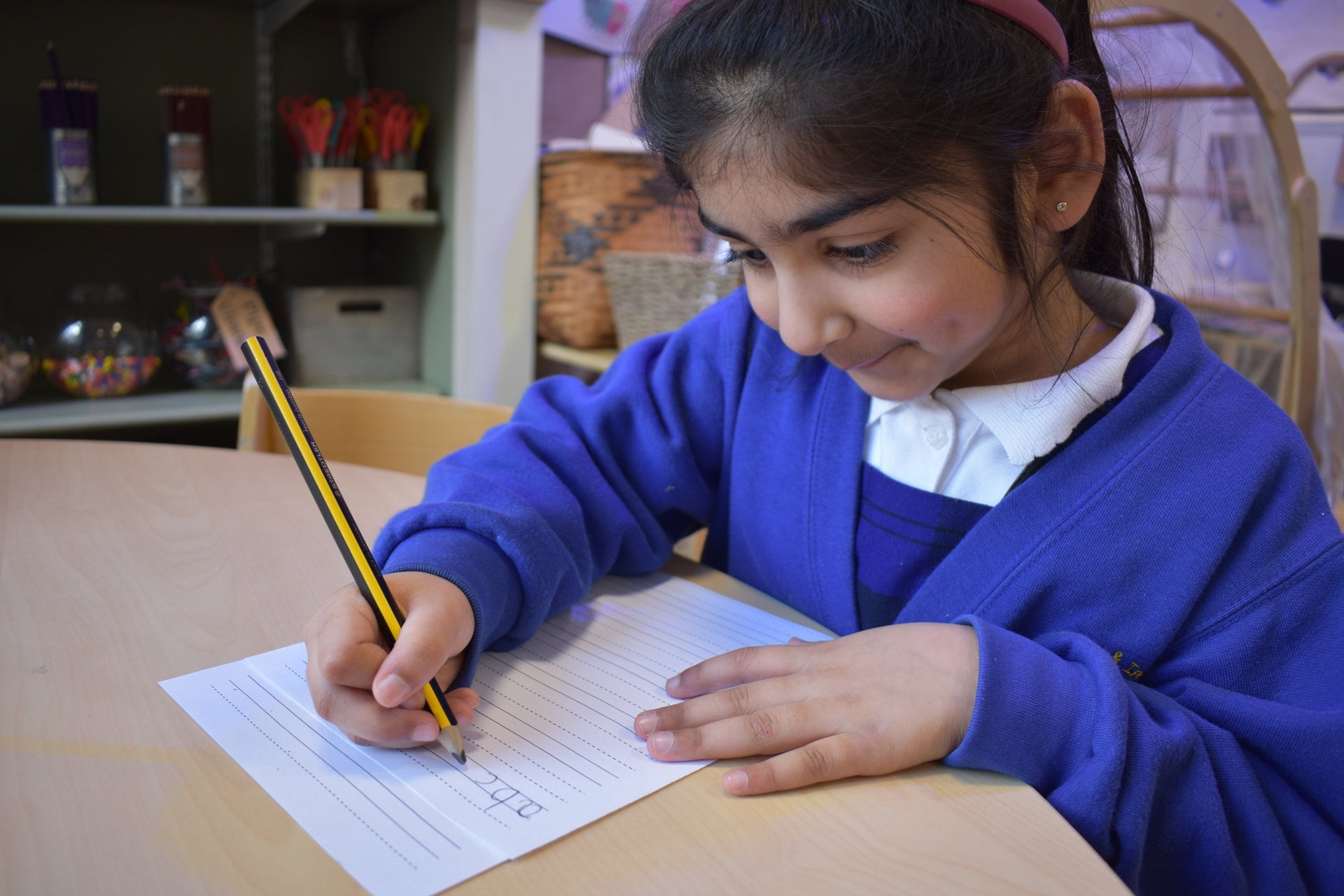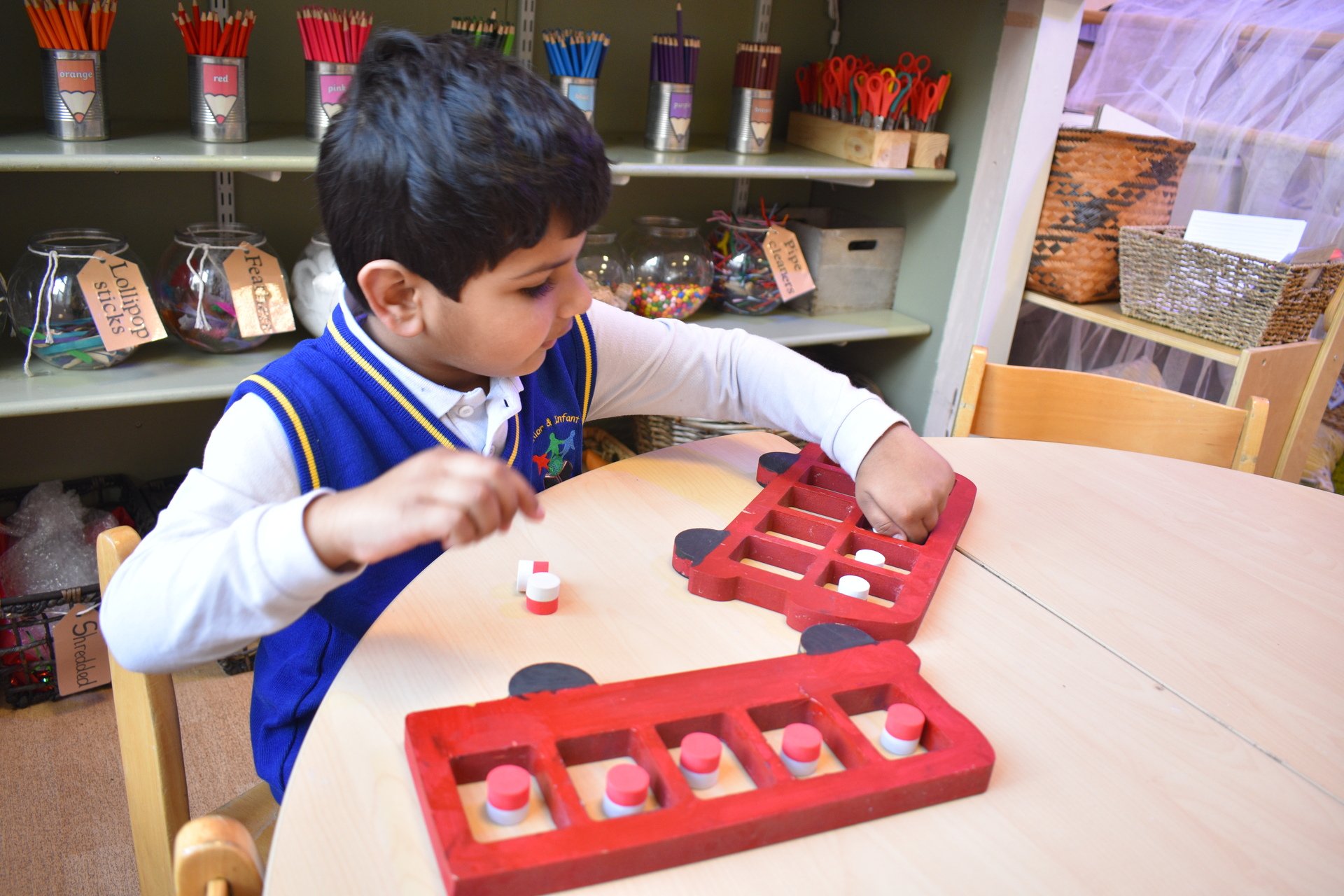Early years foundation stage
We know the undisputed impact that great teaching has on children’s progress and outcomes. Our nurturing and experienced Reception Team, along with PE coaches and Forest School teachers , use evidence informed strategies and come with a wealth of expertise and an unfaltering commitment to make a difference every day.
In the Early Years Foundation Stage children learn best when they experience learning first hand, through meaningful interactions with others, through physical activity and through play. Our teaching is adaptive and is based on on-going observation and assessment of the children and their interests. We believe the best outcomes for children’s learning occur from either child-initiated play, actively supported by adults or focused learning, with adults guiding the learning through playful, rich and experiential activities.




Our Long Term Planning in EYFS is informed by the following documents:
- Statutory Framework EYFS
- Birth to 5 matters
These documents have been used to help design our long term planning. The above document informs the objectives we want to cover each half term. It also sets out our end of year key knowledge and skills in Reception and the minimum expectations for that year group. The topics are used to engage and promote the children's interests and needs.
Early Years Long Term Planning 2024-2025




Birth to 5 matters provides comprehensive guidance, drawing on previous guidance for the Early Years Foundation Stage (EYFS) which has been updated in order to reflect recent research, to meet the needs of practitioners, to respond to current issues in society, to meet the needs of children to today and to lay a strong foundation for their futures.




Our Early Years Policy can be found here
Below you will find other relevant and key policies followed in EYFS.
Click here to read the Acceptable Use Policy EYFS
Click here to read Carltons code of conduct policy
Click here to read Carltons safeguarding and child protection policy
Click here to read Carltons special educational needs policy




Intent- Why do we teach what we teach?
At Carlton Junior and Infant School, we place great value on the development of
children as individuals and on providing them with the skills and knowledge needed
for them to progress well. Our aim in the EYFS is to enable the children to become
confident, motivated and happy learners, developing the skills and attitudes
necessary for their own successful future learning.
Our curriculum is based around providing first hand learning experiences, through
meaningful interactions with others, through physical activity and through play. We
provide the knowledge, skills and understanding they require for success. We always
consider the individual needs, interests, and development of each child. We use this
information to plan challenging and enjoyable experiences for each child in all areas
of their learning and development through the Characteristics of Effective Learning –
Play and Exploring, Active Learning and Creative and Critical Thinking.
Many of our pupils arrive well below national expectations for their age and a high
proportion come from disadvantaged backgrounds and with additional needs. We
have to teach them how to listen, speak and meet the high expectations for
behaviour by working together and being kind. We prioritise personal, social and
emotional development and communication and language. Our enabling
environment and our nurturing and skillful adult interactions support the children as
they begin to link learning to their play and exploration. As the pupils arrive in
Reception we focus on these areas as well as early reading, writing and
mathematical skills. This is delivered through a holistic curriculum which maximises
opportunities for meaningful cross-curricular links and learning experiences as well
as promoting the unique child by offering extended periods of play and sustained
thinking following children’s interests and ideas. We value imagination and creativity
and seek to create a sense of enjoyment and fascination in learning through our
indoor and outdoor provision, alongside trips and visits. We promote a forest school
approach, where learning outdoors is weaved into our daily activities and learning.
Implementation- How to we teach what we teach?
Teaching in EYFS can take on many forms and it covers the many different ways
that adults within the setting help children to learn. We understand that the
interactions between the adults and children are vital during planned and child-
initiated play and activities. Practitioners interact with children though modelling
language, showing, explaining, demonstrating, exploring, questioning, encouraging
and investigating and providing challenges. Pupils learn through a balance of child-
initiated and adult-directed activities. In Reception, the timetable is carefully
structured so that children have rigorous directed teaching in phonics, maths and
writing. These sessions are followed by small group work/ 1:1 sessions so that the
teacher can systematically check for understanding, identify and respond to
misconceptions quickly and provide verbal feedback.
Children are provided with time to engage in ‘exploration’ throughout the variety of
experiences carefully planned to engage and challenge them in the provision. The
curriculum is planned for the inside and outside classrooms and equal importance is
given to learning in both areas. The curriculum is planned in a cross-curricular way to
enable all aspects of the children’s development including understanding the world
and expressive art and design as well as to promote sustained thinking and active
learning.
Reading is at the heart of our curriculum. Children follow the rigorous and systematic
phonics programme, Read, Write, Inc. Every child in Reception has access to a
phonics session for 40-45 minutes every day. Daily interventions are carried out to
support children who are finding phonics more difficult. A love of reading is at the
heart of our curriculum with highly engaging books being part of our topics/themes.
We develop a love of reading through high quality and positive shared interactions
with adults.
We follow the Maths Mastery approach (White Rose) in Reception with an emphasis
on studying key skills of number, calculation and shape so that pupils develop deep
understanding and the acquisition of mathematical language. Pupils learn through
games and tasks using concrete objects which are then rehearsed and applied to
their own learning during exploration. Reception pupils develop these key skills
during daily maths sessions, where they explore number, calculation, shape and
measure. These early mathematical experiences are carefully designed to help
pupils remember the content they have been taught and to support them with
integrating their new knowledge across the breadth of their experiences and into
larger concepts.
Our inclusive approach means that all children learn together but we have a range of
additional intervention and support to enhance and scaffold children who may not be
reaching their potential or moving on children who are doing very well. We use
‘immediate interventions’ in maths to address gaps in learning. The characteristics of
effective learning are viewed as an integral part of all areas of learning and are
reflected in our observations of children.
Our regular monitoring of teaching and learning includes coaching and feedback
from the phase leader so that teachers develop good subject knowledge and are
effectively supported. We tailor our staff CPD to be early years specific and are
focused on moderating outcomes across the phase so that every member of our
team feels confident in making accurate judgements about where individual pupils
are and their next steps for learning.
The EYFS team collect evidence of children’s learning through work completed in
their workbook (Reception), observations, photos and videos which are shared with
parents daily using the Early Essence online system. This means that parents can
engage with children regularly about their learning and can contribute to the
knowledge we have of the child in school.
Impact- How do we know what pupils have learnt and how well they have learnt it?
Baseline: Prior to children starting, staff spend time speaking to the child’s parents,
previous settings and read previous learning journey’s to gain an understanding of
the whole child and where they are at. During the first half term in Reception, all staff
use ongoing assessments, observations and conversations with the child to develop
a baseline assessment. This identifies each individual’s starting points in all areas so
we can plan experiences to ensure progress. The following baseline assessments
are also carried out.
The RBA (Statutory Reception Baseline Assessment): This assessment focuses on
‘Language, Communication and Literacy,’ and ‘Mathematics.’ The purpose of this is
to show the progress children make from Reception until the end of KS2.
Ongoing Observation: All ongoing observations are used to inform weekly planning
and identify children’s next steps. This formative assessment does not involve
prolonged periods of time away from the children and excessive paper work.
Practitioners draw on their knowledge of the child and their own expert professional
judgements through discussions with other practitioners, photographs and physical
examples such as a child’s drawing / making. Some observations are uploaded
using Early Essence.
Assessment: Phonic assessments are carried out using the ‘RWI’ tracking and
assessment system. This is carried out every half term to quickly identify pupils that
are not making expected progress. Our aim is for children to ‘keep up’ rather than
‘catch up’ where possible. Assessments are completed six times per year and
shared with parents during termly parent- teacher consultations. In Summer Term 2,
the EYFSP is completed where teacher judge whether the child has met each of the
17 ELG’s. They will be assessed as either ‘emerging’ or ‘expected.’ Impact is also
evident through our successful transitions into Year 1. EYFS staff have a good
understanding of how ELG’s link to the National Curriculum, and through our robust
planning and delivery across the spectrum of subjects – both core and foundation -
children leave the EYFS stage with the skills, knowledge and understanding in the
prime and specific areas.




In Reception we use White Rose Maths and the Mastering Number to inform our planning and teaching for each half term.
mastering-number-reception-overview




Reading
Reading underpins all other aspects of learning - it is of paramount importance and therefore is a large part of our curriculum in EYFS.
We aim to develop pupils' reading through systematic, synthetic phonics teaching (using the scheme Read, Write Inc), 1:1 reading, home sharing books and shared reading so that children will learn to read widely, fluently, frequently and with good understanding and pleasure.
We involve parents in improving their child’s reading through parent workshops, home-school diaries and phonetically progressive books. We model reading with expression, and we promote enjoyment and understanding, through daily shared reading of our core books and access to books in our inviting reading areas. We ensure that all children have the opportunity to have a high quality text read to them every day in school - this is through the school's ‘core books’ which adults have access to in every classroom.
Phonics
Click here to find out What is Read Write Inc phonics




What is Read to Write?
Read to Write Foundations provides a clear teaching sequence for writing through evidence-based approaches. These comprehensive termly units have been constructed against the reformed Early Years Foundation Stage Curriculum. They have an emphasis on providing practical ways for young children to engage, explore and enjoy communicating through writing at their individual stage of development.
They also:
- Have been developed specifically to support children on their writing journey towards the Literacy Early Learning Goals
- Provide opportunities for adults and children to share ideas and engage in a rich range of vocabulary and language structures
- Provide a strong planning scaffold for teachers
- Empower teachers to teach a range of writing through Vehicle Texts (high-quality children’s literature)
- Have a heightened focus on Daily Sentence Accuracy work
- Are sequenced, coherent and progressive across the year
- Have a clear focus on the skills and strategies needed to be a proficient and confident writer
- Help schools to ensure expectations for children at the end of the EYFS are reached
Watch the You tube video to find out more




Here are plenty of activities for you to complete with your child. It answers a hundred questions or more from the best of that experience about the stages of core development and what a growing human needs. Have fun!
100 things to do before your six.pdf




Please see below feedback from parents, trainee teachers, pupils and professionals
"Thank you for all the love, care and dedication that you put into teaching our children. Thank you very much for all the hard work for early years team."- S. Riyas
"Maryam loves going to school everyday which makes it easy for me as a parent. She has learnt to read words and write too in just a few months. Huge thanks to the teachers." - N. Lambat
"I like all the teachers and they need a break from all the work they have to do!" -Maryam aged 5
"Hana has enjoyed her time at school settled in quickly and bonded well with teachers and peers. I have noticed a significant difference in her learning growth within half the year and looking forward to the rest of the year." - Z. Khan
"My daughter absolutely loves coming to school everyday! All her teachers and TAs are amazing. They are always so friendly, caring and supportive. I am so impressed with the progress my daughter has made in such a short time! It’s wonderful to see her thriving and becoming more independent. I also thoroughly enjoy attending the regular parent/child workshops. All staff put a lot of effort into organising a range of fun, interactive activities.
Thank for all your hard work and devotion!" - F. Abid
"My placement in EYFS was great. The children were very well behaved and the support from the teachers was invaluable" - Mr. Salu
"My placement with Miss Hewitt and Mrs Sajjad was great. Their constant support and understanding has made me compassionate for teachers and their workload. They allowed me to accompany them on a school trip to Stockeld Park and I was blown away with how well behaved the children were even though it was raining. Their manners were exceptional. I will always remember this placement" -Miss Hussain
"I like coming to school and seeing my teachers waiting with a smile at the door" - Noor aged 4
"I loved that the teachers came to see me at nursery and my house"- Musa aged 4
"I have worked closely with Carlton over the years and wanted to congratulate you on the continued excellent work that goes into making Carlton such a special school, changing life chances for your lovely pupils. I look forward to continue to work with you in 2024 and beyond." - V. Lunniss (Bradford College)
" I think that it is a pleasure to visit Carlton Junior and Infants and to provide outreach suggestions to staff who are enthusiastic " - J. Ryan (CCI Team)
"When working with EYFS children, they are very engaged and willing to learn. They have come so far in such a short space of time" - S. Gott (Sports Coach)

P4C in Early Years
The early year’s classroom is a place which thrives on excitement, curiosity and discovery, where language and communication are the foundations of play and adventure. A classroom that introduces philosophical thinking and talking, playing and storytelling becomes a classroom alive with possibilities for past, present and future understanding.
We all philosophise at various times in our lives. We want to know about our existence, our relationships, our place within society and the wider world. Philosophy explores these important questions and allows us opportunities to think about our answers. Both as adults and children we have an innate desire to investigate and make sense of the world around us, what happens to us, how and why? The Philosophy for Children (P4C) teaching model offers a practical, usable and exciting way of encouraging children to unlock their innate curiosity. Through the overt modelling and teaching of early philosophical skills, we can provide children with the tools for genuine enquiry.
Transition
Key points:
- Transition is a process, not an event.
- High quality transitions recognise the importance of feeling “known”.
- Some children are particularly vulnerable to at times of transition.
- Transitions are opportunities for professional dialogue.
- The key person makes essential connections.
- Transition includes moving from EYFS to KS1.
Transition at Carlton
At Carlton, our transition into school starts in the summer term with the following event:
- Stay and Play
- Nursery Visits
- Home Visits
- Forest School Event
- Welcome Meetings
Our transition to Year 1 consists of:
- Spending a week in the Year 1 class with the prospective teacher
- Opportunities to experience the new curriculum
- Getting to know the staff and the new environment




Cultural capital is the essential knowledge that children need to prepare them for their future success.
This is about taking into account that children will arrive in our settings with differing amounts of experience and trying to make life a little more of an even playing field for all children.
This happens formally, through gathering information from parents and carers and talking to the children, and, informally, through observation and listening to the child.
Cultural capital is about widening children’s experiences and offering them opportunities that they would not have if they were not attending our setting. At Carlton, we are always using the EYFS curriculum to enhance and extend opportunities available for children, for example, encouraging them to experience the awe and wonder of the natural world in which we live. We also tend to try and help to motivate and interest children by starting with real-life, first-hand activities and experiences. For example, we might take the children to the library or walk them to the post office to post a letter or allow them to climb a tree in the park. So this is not necessarily about doing anything differently or in addition to what we already do, it is more about acknowledging what we currently do in the light of cultural capital.










































